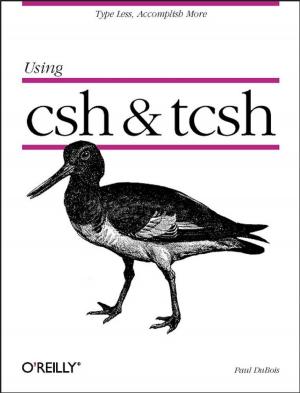Countdown to Zero Day
Stuxnet and the Launch of the World's First Digital Weapon
Nonfiction, History, Military, Weapons, Computers, Networking & Communications, Computer Security, Operating Systems| Author: | Kim Zetter | ISBN: | 9780770436186 |
| Publisher: | Crown/Archetype | Publication: | November 11, 2014 |
| Imprint: | Crown | Language: | English |
| Author: | Kim Zetter |
| ISBN: | 9780770436186 |
| Publisher: | Crown/Archetype |
| Publication: | November 11, 2014 |
| Imprint: | Crown |
| Language: | English |
Top cybersecurity journalist Kim Zetter tells the story behind the virus that sabotaged Iran’s nuclear efforts and shows how its existence has ushered in a new age of warfare—one in which a digital attack can have the same destructive capability as a megaton bomb.
In January 2010, inspectors with the International Atomic Energy Agency noticed that centrifuges at an Iranian uranium enrichment plant were failing at an unprecedented rate. The cause was a complete mystery—apparently as much to the technicians replacing the centrifuges as to the inspectors observing them.
Then, five months later, a seemingly unrelated event occurred: A computer security firm in Belarus was called in to troubleshoot some computers in Iran that were crashing and rebooting repeatedly.
At first, the firm’s programmers believed the malicious code on the machines was a simple, routine piece of malware. But as they and other experts around the world investigated, they discovered a mysterious virus of unparalleled complexity.
They had, they soon learned, stumbled upon the world’s first digital weapon. For Stuxnet, as it came to be known, was unlike any other virus or worm built before: Rather than simply hijacking targeted computers or stealing information from them, it escaped the digital realm to wreak actual, physical destruction on a nuclear facility.
In these pages, Wired journalist Kim Zetter draws on her extensive sources and expertise to tell the story behind Stuxnet’s planning, execution, and discovery, covering its genesis in the corridors of Bush’s White House and its unleashing on systems in Iran—and telling the spectacular, unlikely tale of the security geeks who managed to unravel a sabotage campaign years in the making.
But Countdown to Zero Day ranges far beyond Stuxnet itself. Here, Zetter shows us how digital warfare developed in the US. She takes us inside today’s flourishing zero-day “grey markets,” in which intelligence agencies and militaries pay huge sums for the malicious code they need to carry out infiltrations and attacks. She reveals just how vulnerable many of our own critical systems are to Stuxnet-like strikes, from nation-state adversaries and anonymous hackers alike—and shows us just what might happen should our infrastructure be targeted by such an attack.
Propelled by Zetter’s unique knowledge and access, and filled with eye-opening explanations of the technologies involved, Countdown to Zero Day is a comprehensive and prescient portrait of a world at the edge of a new kind of war.
Top cybersecurity journalist Kim Zetter tells the story behind the virus that sabotaged Iran’s nuclear efforts and shows how its existence has ushered in a new age of warfare—one in which a digital attack can have the same destructive capability as a megaton bomb.
In January 2010, inspectors with the International Atomic Energy Agency noticed that centrifuges at an Iranian uranium enrichment plant were failing at an unprecedented rate. The cause was a complete mystery—apparently as much to the technicians replacing the centrifuges as to the inspectors observing them.
Then, five months later, a seemingly unrelated event occurred: A computer security firm in Belarus was called in to troubleshoot some computers in Iran that were crashing and rebooting repeatedly.
At first, the firm’s programmers believed the malicious code on the machines was a simple, routine piece of malware. But as they and other experts around the world investigated, they discovered a mysterious virus of unparalleled complexity.
They had, they soon learned, stumbled upon the world’s first digital weapon. For Stuxnet, as it came to be known, was unlike any other virus or worm built before: Rather than simply hijacking targeted computers or stealing information from them, it escaped the digital realm to wreak actual, physical destruction on a nuclear facility.
In these pages, Wired journalist Kim Zetter draws on her extensive sources and expertise to tell the story behind Stuxnet’s planning, execution, and discovery, covering its genesis in the corridors of Bush’s White House and its unleashing on systems in Iran—and telling the spectacular, unlikely tale of the security geeks who managed to unravel a sabotage campaign years in the making.
But Countdown to Zero Day ranges far beyond Stuxnet itself. Here, Zetter shows us how digital warfare developed in the US. She takes us inside today’s flourishing zero-day “grey markets,” in which intelligence agencies and militaries pay huge sums for the malicious code they need to carry out infiltrations and attacks. She reveals just how vulnerable many of our own critical systems are to Stuxnet-like strikes, from nation-state adversaries and anonymous hackers alike—and shows us just what might happen should our infrastructure be targeted by such an attack.
Propelled by Zetter’s unique knowledge and access, and filled with eye-opening explanations of the technologies involved, Countdown to Zero Day is a comprehensive and prescient portrait of a world at the edge of a new kind of war.















